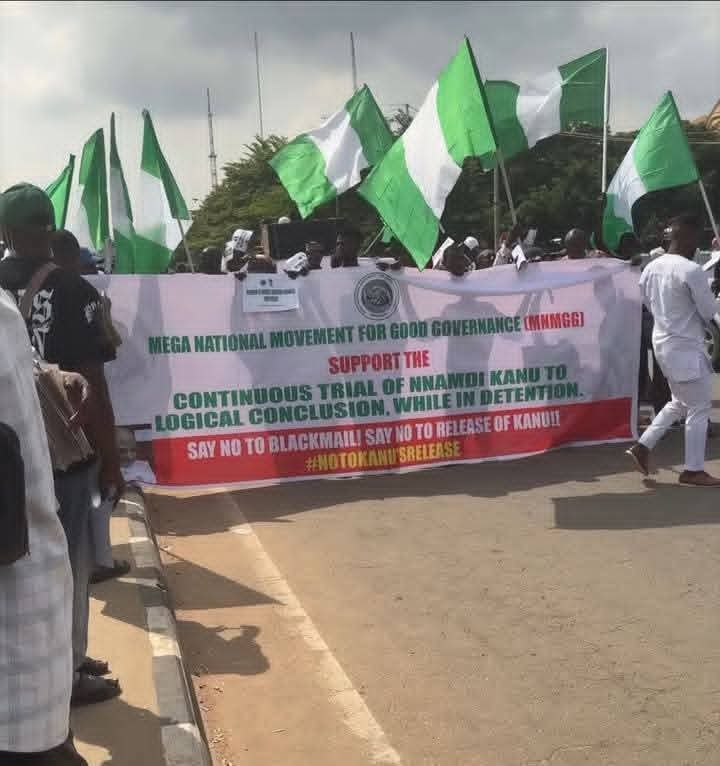Obedience Is Rebellion, Hypocrisy Is Patriotism — Welcome to the Federal Republic of Irony
In what Nigerians have described as a shameful theatre of double standards, the nation’s security agencies once again turned Abuja into a stage of selective justice and political absurdity.
On Tuesday, soldiers and police officers unleashed violence on peaceful protesters demanding the release of the detained leader of the Indigenous People of Biafra (IPOB), Mazi Nnamdi Kanu, while, astonishingly, another group staging a counter-protest against his release was allowed to dance freely through the same capital city, under police escort and protection.
The irony was suffocating.
While Kanu’s sympathizers were tear-gassed, battered, dragged on the ground, and thrown into vans, the other group, led by one Chizorom Ofoegbu, marched comfortably with full security cover chanting anti-Kanu slogans and brandishing banners praising the government.
Reports confirmed that among those arrested and humiliated were Kanu’s brother, Emmanuel Kanu, his lawyer, and several other activists who had gathered peacefully to demand justice and obedience to court orders.
“They came with guns, trucks, and tear gas. We raised placards, not weapons. But they treated us like terrorists,” shouted one of the arrested protesters before being whisked away.
Meanwhile, Ofoegbu’s faction, tagged ‘Concerned Citizens for National Unity’, was reportedly escorted through Abuja streets by heavily armed policemen — smiling, posing for cameras, and enjoying state-funded protection.
Observers have branded the scene a national embarrassment, it is a tragic display of Nigeria’s two-tier justice system where loyalty dictates legality and peaceful dissent is treated like treason.
“This is madness,” fumed a human rights lawyer who witnessed the event. “When one group is brutalized for asking that the law be obeyed, and another is shielded for praising government disobedience, what we have is not democracy — it’s organized hypocrisy!”
The Army and Police have yet to release any official statement, but their silence only deepens the outrage and reinforces suspicions of a state-sanctioned clampdown on free expression.
Civil society groups have condemned the arrests and demanded the immediate release of all detained protesters, warning that this kind of selective brutality could ignite wider unrest.
As night fell over the capital, the mood was tense — Abuja reeked of irony:
In one corner, citizens in handcuffs for asking for justice; in another, citizens in police convoy for defending injustice.

